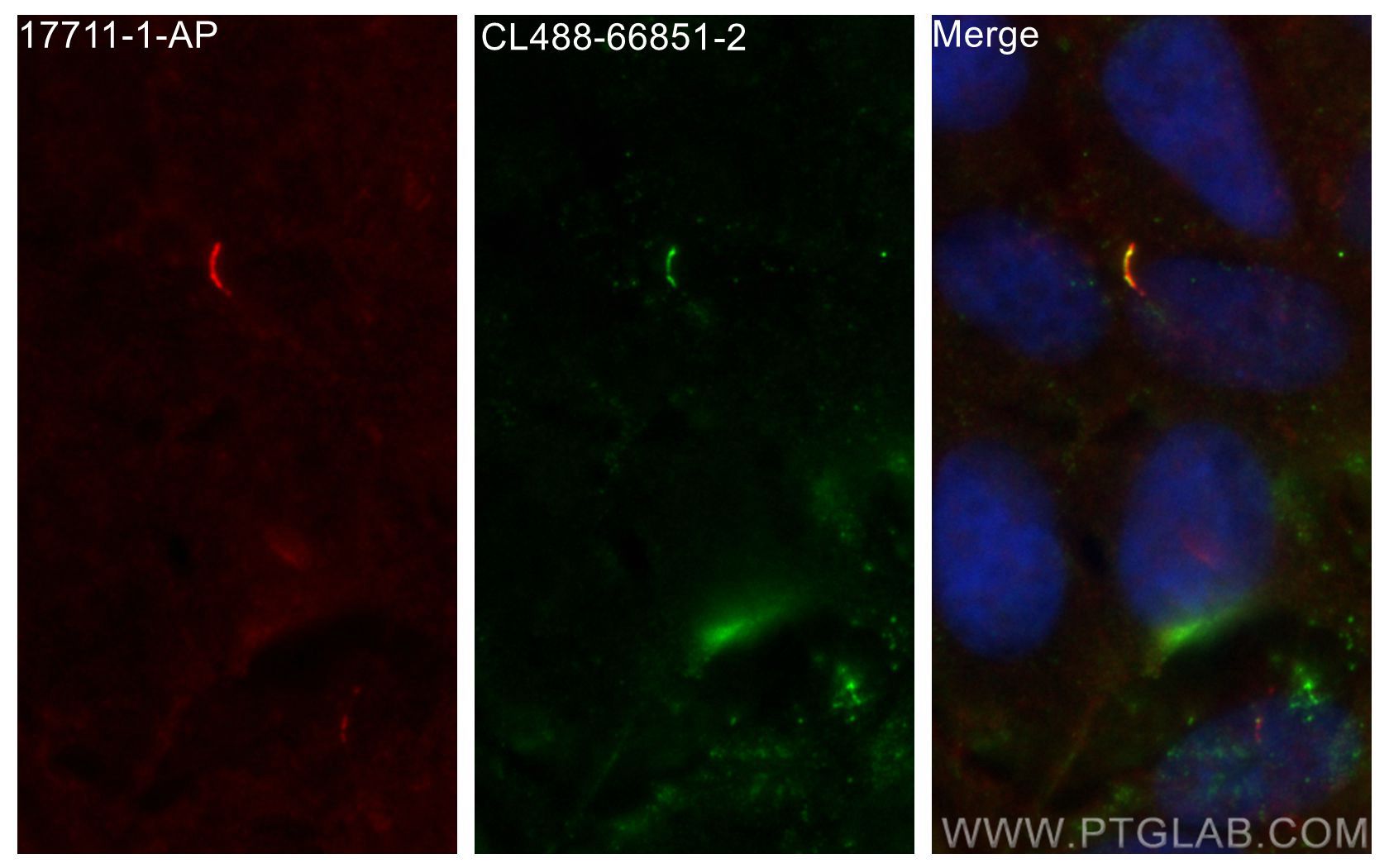验证数据展示
经过测试的应用
| Positive IF/ICC detected in | hTERT-RPE1 cells |
推荐稀释比
| 应用 | 推荐稀释比 |
|---|---|
| Immunofluorescence (IF)/ICC | IF/ICC : 1:50-1:500 |
| It is recommended that this reagent should be titrated in each testing system to obtain optimal results. | |
| Sample-dependent, Check data in validation data gallery. | |
产品信息
CL488-66851-2 targets SMO in IF/ICC applications and shows reactivity with Human samples.
| 经测试应用 | IF/ICC Application Description |
| 经测试反应性 | Human |
| 免疫原 | SMO fusion protein Ag25861 种属同源性预测 |
| 宿主/亚型 | Mouse / IgG1 |
| 抗体类别 | Monoclonal |
| 产品类型 | Antibody |
| 全称 | smoothened homolog (Drosophila) |
| 别名 | Gx, Protein Gx, SMO, SMOH, Smoothened homolog |
| 计算分子量 | 787 aa, 86 kDa |
| GenBank蛋白编号 | BC009989 |
| 基因名称 | SMO |
| Gene ID (NCBI) | 6608 |
| RRID | AB_3084278 |
| 偶联类型 | CoraLite® Plus 488 Fluorescent Dye |
| 最大激发/发射波长 | 493 nm / 522 nm |
| 形式 | Liquid |
| 纯化方式 | Protein G purification |
| UNIPROT ID | Q99835 |
| 储存缓冲液 | PBS with 50% glycerol, 0.05% Proclin300, 0.5% BSA , pH 7.3 |
| 储存条件 | Store at -20°C. Avoid exposure to light. Stable for one year after shipment. Aliquoting is unnecessary for -20oC storage. |
背景介绍
Smoothened (SMO) is a G protein-coupled receptor that is a component of the hedgehog (Hh) signaling pathway and is conserved from flies to humans. The Hh pathway plays central roles in animal development and stem-cell function. Defects in Hh signalling lead to birth defects and cancer in humans. Expressed on the primary cilium, SMO interacts with the patched protein, a receptor for Hh proteins.
实验方案
| Product Specific Protocols | |
|---|---|
| IF protocol for CL Plus 488 SMO antibody CL488-66851-2 | Download protocol |
| Standard Protocols | |
|---|---|
| Click here to view our Standard Protocols |
